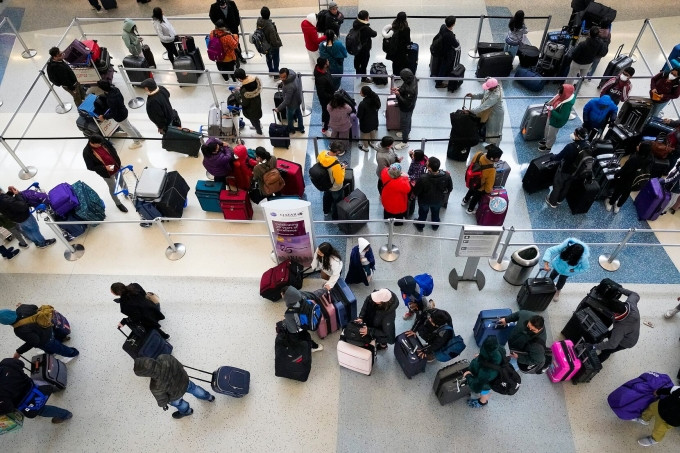For many travelers, the destination is not the final leg of their flight but rather a connecting stop.
Direct flights are usually more expensive than connecting flights. Many people choose to connect to save money, but not everyone takes the flight to the final destination. Many people stop at the transit point because that is the city they want to go to.
Kathleen Bangs, a former pilot and spokesperson for FlightAware, one of the world’s largest flight tracking platforms, said a nonstop ticket from Minneapolis to Miami costs $500. A ticket from Minneapolis to Florida, with a stopover in Miami, costs $350. So many people who want to go to Miami will choose option two: book a Minneapolis-Florida flight but stop over in Miami and skip the final Miami-Florida leg. “They’ll save $150,” Bangs said. This cheap-ticketing trick is known as skiplagging.

Passengers queue to board a plane at Fort Worth International Airport, USA in late 2022 (Photo:Dallas news)
People who choose this flight will not check in their luggage to avoid the case of their suitcase being transferred directly to the next flight.
Amanda, a marketing employee living in Texas, USA, often chooses this method to save money on international flights. The female traveler applied it to nearly 10 flights, saving 3,000-4,000 USD in 3 years from 2021. Airlines seem to have not yet discovered Amanda's flight cancellation.
When asked if she was worried about being caught, Amanda replied "yes". However, she hoped she wouldn't be caught because this way of flying "helped me a lot". "I plan to fly again like this at the end of the month", the American tourist said.
Those who stop at a connecting point and do not complete their flight could face penalties from their carriers. "But this is not a criminal offence," CNN said.
“You won’t go to jail. Airlines will consider this a violation of the terms and conditions you agreed to when you booked your ticket,” said Scott Keyes, founder of travel website Going. However, airlines may penalize those who flout the rules, such as cutting frequent flyer miles or banning them from flying, and asking passengers to pay the difference in fares.
Phil Dengler, co-founder of online travel advice site The Vacationer, says skipping the last leg isn’t a new tactic, and has been around for a long time. In fact, many travel agents use it as a way to help customers get cheaper tickets.
Airlines don’t like this because it creates unnecessary stress for ground staff. When a passenger doesn’t board, the airline has to spend time looking for the passenger, sending staff around the airport, calling out names. Staff at the ticket counter may delay closing the gate to wait for a passenger who will never show up.
CNN sent interview questions to nine major airlines in the world, including American, Delta, United, Air Canada, British Airways, Emirates, and Lufthansa, but received no response. Several other airlines said they "did not want to talk much about this topic" because it would unintentionally spread the information widely, making more people aware and take action.
Dengler "doesn't recommend that travelers skip a flight" because "you're causing yourself and the airline too much trouble and stress." Still, many people are willing to take the risk.
Amanda said it was the only way she could afford to fly internationally as often as she needed to. "Ticket prices are now three to five times higher than they were a year ago, and sometimes we can't afford to travel," she said.
According to VnExpress